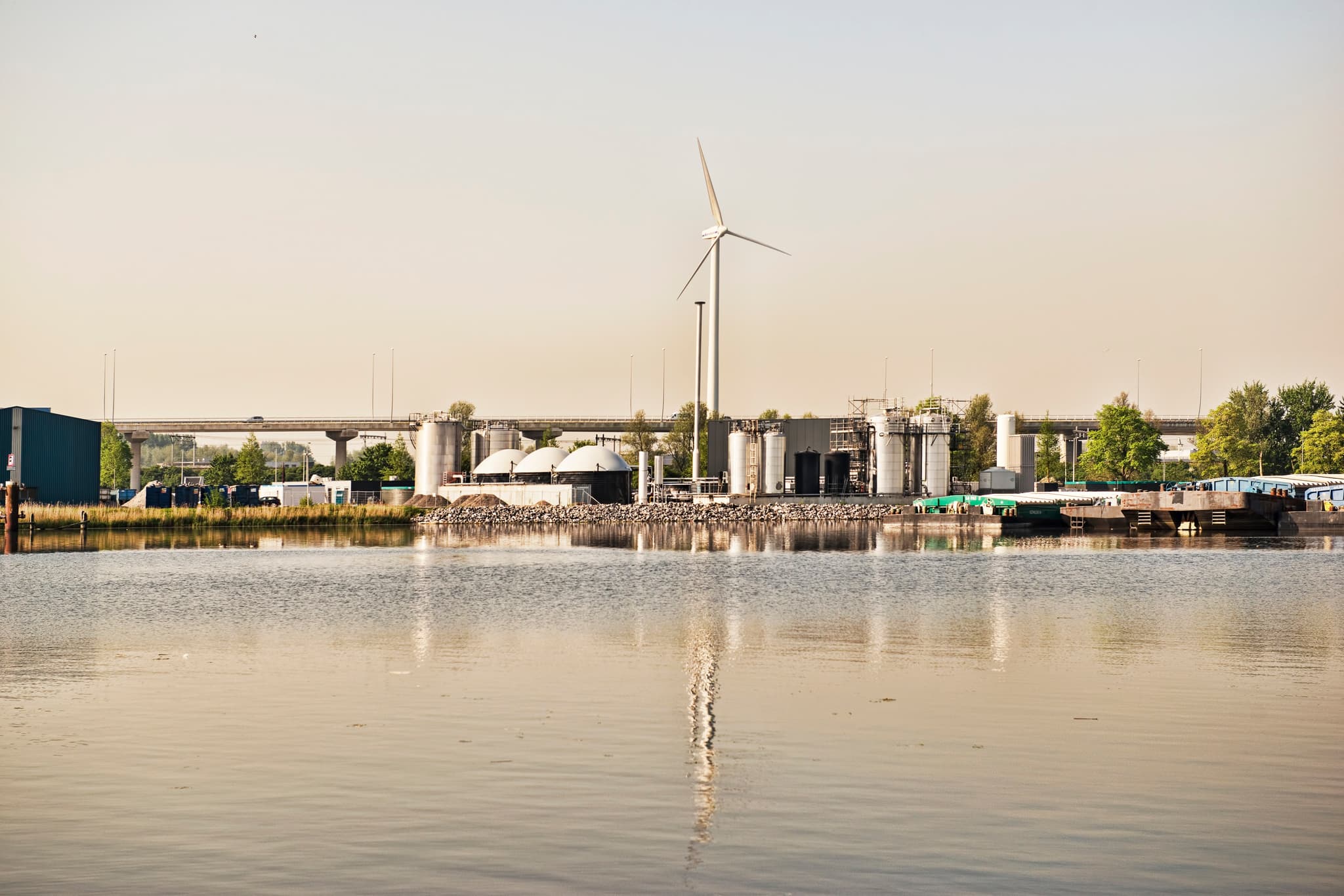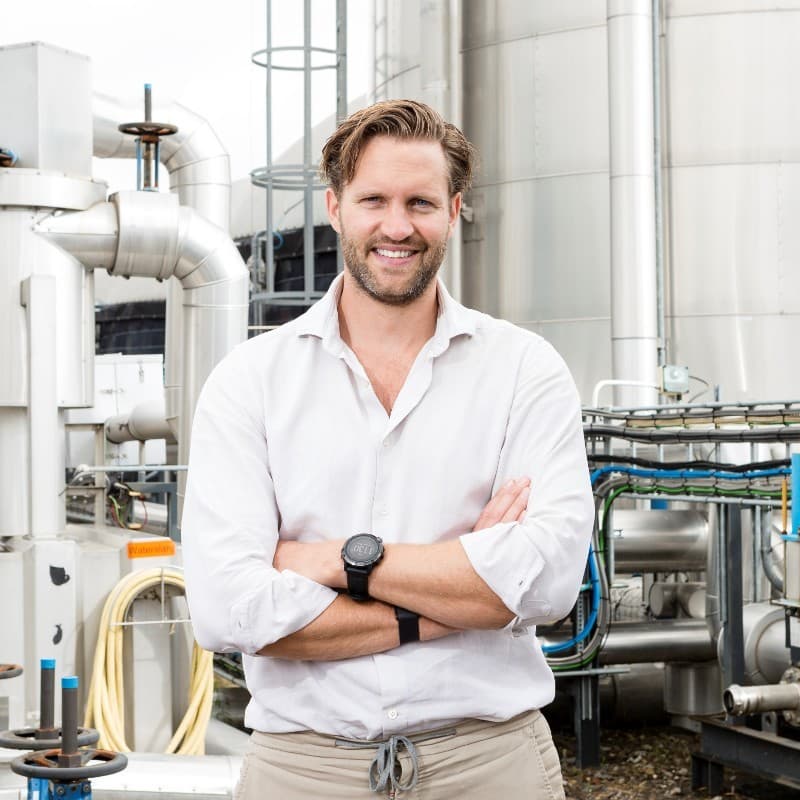From potato leftovers to fatty acids: circular plant opens in Groningen
Scaleup ChainCraft and potato processor Avebe are joining forces on the road to a circular economy.
Published on December 13, 2024

As Head of Partnerships, Linda liaises with new partners. She coordinates all ongoing collaborations and connects our journalistic editorial and commercial articles. She is not only the connector behind our articles, but also all of our events.
ChainCraft will convert the residual stream of potato processor Avebe into fatty acids, a valuable raw material for various industries. To do so, the scaleup will build a new plant. “This is a great step for us. Moreover, it is an important development to show we can and must organize material production differently,” says Niels van Stralen, founder and chief growth officer at ChainCraft.
Avebe makes various ingredients from potatoes, such as starch and protein. The organic leftover is evaporated and sold to companies that turn it into animal feed or fertilizer. “We can convert that sidestream - without evaporating it - into fatty acids and pure fertilizers. This way, we generate a higher-quality product. Moreover, we save a lot of energy,” Van Stralen explains.
By building a factory next to Avebe's existing facilities in Ter Apelkanaal, Groningen, ChainCraft wants to organize the process as efficiently as possible. Because transportation is not needed, CO2 emissions are reduced. In addition, the companies can make smart use of steam and wastewater.

Scaling up
The plant at Avebe is ChainCraft's first large-scale factory. Currently, the scaleup has a demo plant in the port of Amsterdam. The company originated 14 years ago from Wageningen University & Research (WUR). There, scientists discovered that producing fatty acids from organic waste streams was possible. To date, fatty acids are mainly made with petrochemical oil or palm oil, both polluting sources. The fatty acids are eventually used for various products, such as fragrances and flavorings, cleaning agents, plasticizers, and solvents in the chemical industry. For instance, Ecover's waste-based detergent uses ChainCraft's fatty acids.
From technology to market
Over the next six months, ChainCraft will raise financing for the new plant and establish off-take guarantees. “After that, we will make the final investment decision. If all that goes well, we expect the factory to be operational around 2027,” Van Stralen said. All the elements of the scaleup are now coming together. “On the one hand, we are, of course, busy with the engineering, and on the other hand, we are also busy with market development and capturing customers and cooperation partners. In the end, everything has to fit together well soon.”
Network is crucial
The North Netherlands Development Agency ( NOM) is helping ChainCraft with financing and its network. Van Stralen: “We are moving from Amsterdam to the Northern Netherlands. It helps enormously that through NOM's network, we can easily come into contact with people in the province, municipalities, companies, and local partnerships such as Chemport Europe. That is sometimes just the extra push needed to get something done.”
.jpg&w=2048&q=75)
Expansion
ChainCraft, in turn, is an asset to the North. “Besides Avebe, we have other companies here that process crops on a large scale. For all these companies, extracting the valuable substances from the residual streams and using them again is important. That is one of the biggest challenges towards a circular economy,” says NOM's investment manager Ruud van Dijk. These companies seek the right - and affordable - technology to convert their residual streams into valuable products.
ChainCraft has the potential to provide a solution for all these companies. It started with Avebe. “I find it very clever that a relatively small scaleup managed to convince a large company like Avebe to deploy this new technology,” states Van Dijk.
Financial advantage
Van Stralen says: “It has to pay off for a company to sell their product to us. The two key points are the financial benefits and sustainability, where costs are often decisive. Our concept scores well on both points, and with that, we can convince parties.” Although, according to the entrepreneur, there are always risks involved in deploying a new technology. “And companies have to put in a little more time, for example, to get to know a new process.”
A new economy
Still, it is vital to make time to learn these processes, van Stralen stresses. In order to be truly circular, brand-new supply chains must be built. “We are working toward a new economy where circularity is the starting point. You cannot make such a change on your own as a company. This approach requires a different way of cooperating between all the stakeholders. Governments, investors, and local networks can also help. We need a wide range of parties to realize change.”
In this, Van Dijk also sees the power of a strong network. “Large companies do not immediately implement the new technology in their process; that is too risky commercially. Often they also have their own labs to do research and testing. That is very valuable to be able to experiment together and grow into a new value chain.”
Increasing impact
In addition to the plant at Avebe, ChainCraft is already looking further ahead to the next plant. “Of course, we always have to keep looking ahead. So we are now investigating where the next factory - after the one in Groningen - will be located. That way, we can roll out our technology further and make a positive impact,” Van Stralen states. Van Dijk is confident: “Once ChainCraft has proven the technology at Avebe, many more companies will want to work together.”
Sponsored
This story is the result of a collaboration between NOM and our editorial team. IO+ is an independent journalism platform that carefully chooses its partners and only cooperates with companies and institutions that share our mission: spreading the story of innovation. This way we can offer our readers valuable stories that are created according to journalistic guidelines.
Want to know more about how IO+ works with other companies? Click here
